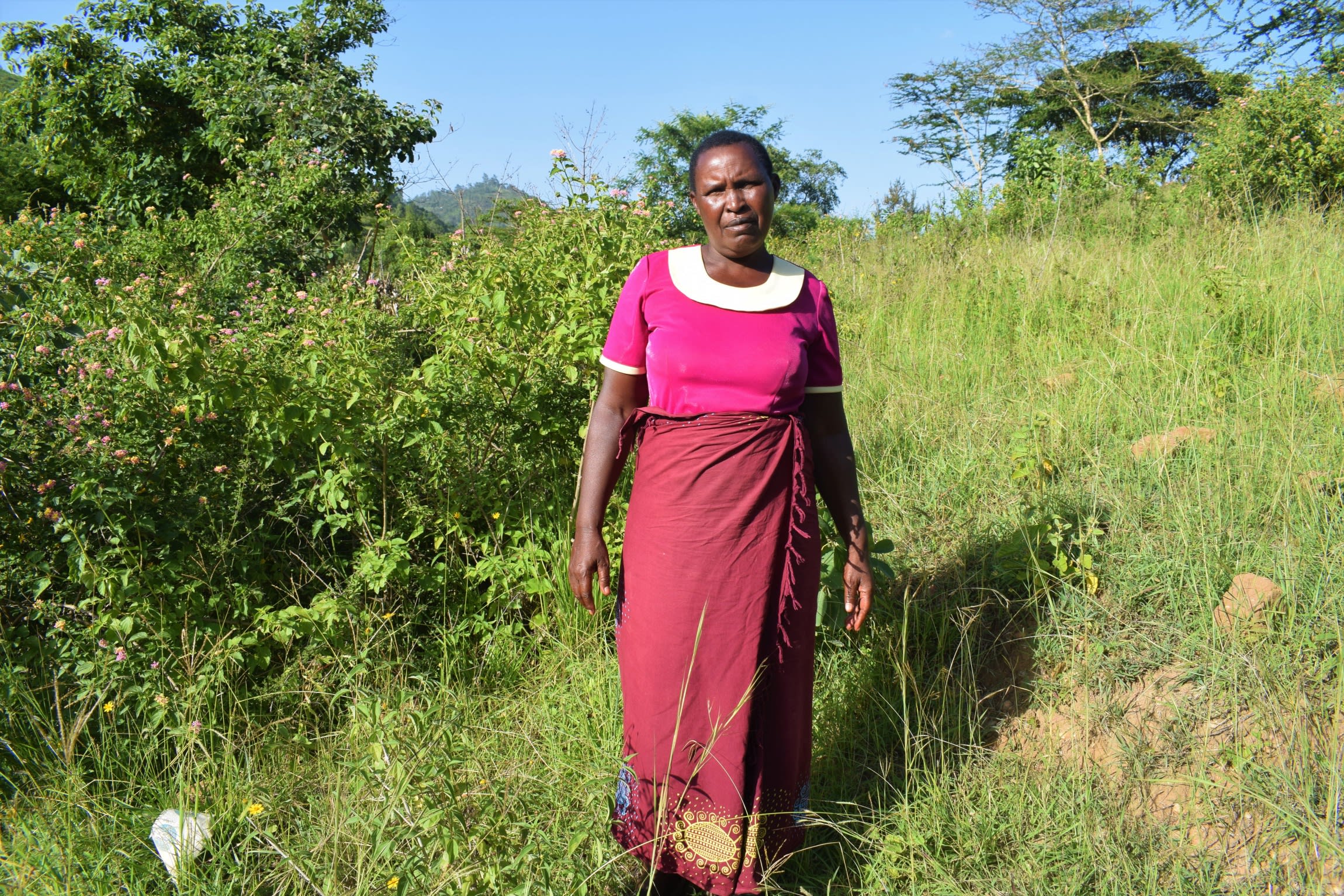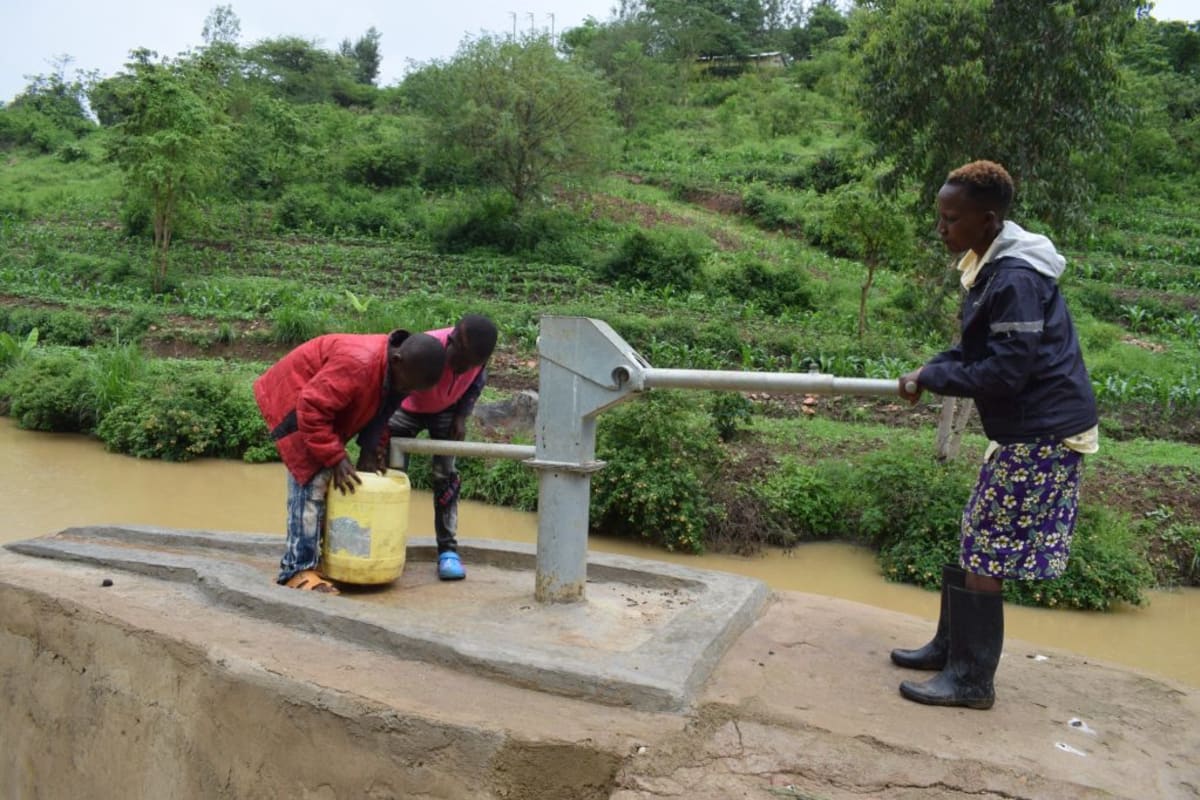For a long time, Kyamwau villagers have persevered through the challenges of water scarcity as a result of the climatic conditions in their area, as they receive little to no rainfall during the year. The rivers flowing in the region are seasonal, and they always dry up, leaving the locals with no option but to walk for very long distances in search of this precious commodity.
The households in this region are sparsely populated due to ownership of vast amounts of land by community members. Most houses are made of bricks and are fitted with iron sheet roofing. The roads in the village are rocky and very bumpy, and the terrain is very hilly and rough.
Access to water is one of the most significant challenges for the 250 people here. Women have to wake up early at 6:00 AM to walk to the seasonal rivers to fetch water and get back home in time to carry out their other household duties, such as preparing their children to go to school and breakfast for their husbands to go to the farms.
During the day, these women may go to the water point again to fetch water as the needs of the house require. The water sources are far from their households, and some people travel 2 hours to get water. They have to spend a lot of time searching for water points, especially during drought periods when they have to dig scoop holes to fetch water stored in the riverbeds. Often, they use the water at home sparingly to reduce trips to the river.
"Once the water dries up, we have to go very far to fetch water. We do not get water for our livestock or household uses because of water scarcity," said Esther Mueni, a 31-year-old farmer.
All of this effort is to get unsafe water for consumption since it is open to contaminants that cause water-borne diseases. Community members have reported suffering from water-related diseases such as typhoid, amoebas, and dysentery.
Reliable Water in Kyamwao
Our main entry point into the community is the Kwa Kalekye Self-Help Group, which is comprised of households that are working together to address water and food scarcity in their region. These members will be our hands and feet in both constructing water projects and spreading the message of good hygiene and sanitation to everyone.
Hand-Dug Well
This particular hand-dug well will be built adjacent to a sand dam project, which will supply clean drinking water once it rains. We have supplied the group with the tools needed for excavation. With the guidance of our artisans and mechanics, the excavated well will be cased, sealed with a well pad, and then finished with a new AfriDev pump.
Excavation takes a month or more on average, depending on the nature of the rock beneath. Construction of the well lining and installation of the pump takes 12 days maximum. The well will be lined with a concrete wall including perforations so that once it rains, water will filter in from the sand dam.
This well will bring clean water closer to families.
New Knowledge
These community members currently do their best to practice good hygiene and sanitation, but their severe lack of water has been a big hindrance to reaching their fullest potential.
We will hold hygiene and sanitation training sessions with the Self-Help Group and other community members to teach about important hygiene practices and daily habits to establish at the personal, household, and community level. This training will help to ensure that participants have the knowledge they need to make the most out of their new water point as soon as water is flowing.
One of the most important topics we plan to cover is the handling, storage, and treatment of water. Having a clean water source will be extremely helpful, but it is useless if water gets contaminated by the time it is consumed. We will also emphasize the importance of handwashing.
We and the community strongly believe that all of these components will work together to improve living standards here, which will help to unlock the potential for these community members to live better, healthier lives.
We typically work with self-help groups for 3 to 5 years on multiple water projects. We will conduct follow-up visits and refresher trainings during this period and remain in contact with the group after all of the projects are completed to support their efforts to improve sanitation and hygiene.

 Protected Dug Well
Protected Dug Well
 Rehabilitation Project
Rehabilitation Project
































